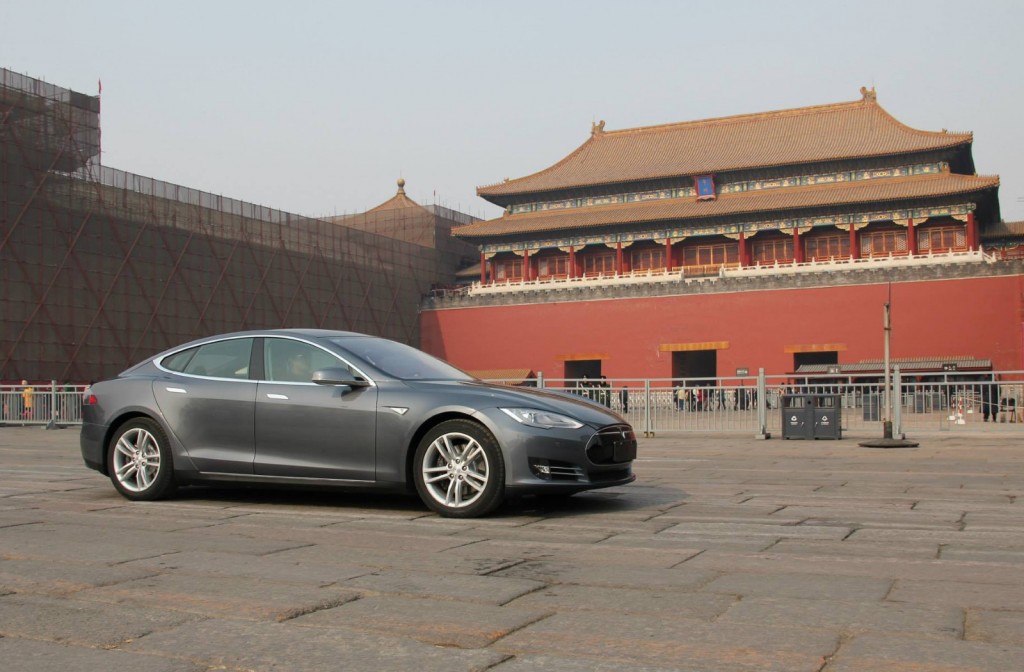It seems that China is facing the old "chicken and egg" dilemma, as it ramps up its push for electric car sales growth.
The country wants to encourage electric car use, and is pushing automakers to sell them--but so far, the country's infrastructure lags far behind.
As the ChinaEV blog notes, it's leaving automakers with their fingers crossed that China will better incentivize electric vehicles and boost recharging infrastructure--as some are investing millions into offering plug-in vehicles in the country.
The scale of the problem is clear.
In 2013, just 14,604 battery-electric cars and 3,038 plug-in hybrid vehicles found homes.
Those figures would be respectable in a small country, but China's total vehicle market approached 22 million vehicles last year--plug-in cars amounted to around 0.08 percent.
MORE: Tesla Will Build Electric Cars In China; Model S On Sale There This Week
Most of those sales were likely to government fleets, including buses and taxis. The number of actual Chinese consumers buying electric vehicles is barely worth measuring.
Subsidies are high--buyers can get as much as 57,000 Yuan off the price of an electric car, just over $9,100 at current exchange rates, or about $5,400 from the price of a plug-in hybrid.
But some feel incentives for plug-in hybrids (and regular hybrids, which currently go without subsidies) should be higher, as they're the more usable vehicles for many Chinese buyers in the short to medium term.

2014 Tesla Model S in China
OEM suppliers Bosch and Siemens are both working on hybrid, plug-in hybrid and full battery-electric technology ready to supply various Chinese manufacturers.
Siemens is working with Chinese firm SAIC on electrification, though most of that output will find its way into commercial vehicles to begin with. Bosch, on the other hand, is putting plenty of stock in its 48V mild hybrid system--capable of boosting economy in the average car by 15 percent.
Interim measures like hybrids and plug-in hybrids also work towards the country's 47 mpg-by-2020 average economy target--hard to hit without electrification--and mitigate China's lack of recharging infrastructure.
MUST READ: China's Electric-Car Future: Government Subsidies, Buyer Resistance
By the end of 2013, Beijing--a city of over 21 million people--had just 69 charging stations. If electric car adoption did suddenly increase, the country's cities would be woefully under-prepared for serving demand for charging.
Lack of incentives aside, China's government really does seem serious about electric cars.
The country is making it as easy as possible for foreign automakers to form joint ventures with Chinese companies to produce vehicles for the country.
Once the country has expanded its charging plans--and enforced a national plug standard, something other countries are finally beginning to do--then perhaps electrified vehicles will start to slink out of the showrooms.
Widespread adoption though? With hybrids, plug-in vehicles and fuel cell cars expected to account for just six percent of the market by 2020--a figure some countries are already hitting--that could take a little longer.
_________________________________________












